Best Kidney Transplant Hospital in Nellore

Kidney health is vital for overall well-being, but chronic kidney disease (CKD) and end-stage renal disease (ESRD) can severely impact lives. For those with severe kidney dysfunction, a kidney transplant can provide a new lease on life when other treatments prove ineffective. This procedure can restore energy and functionality and eliminate the need for dialysis. It’s essential to choose the right facility for this complex surgery, focusing on the expertise of the medical staff, the quality of care, and the long-term outcomes.
At AR Kidney Hospital, recognized as one of the best kidney transplant hospitals in Nellore, a team of experienced professionals led by Dr. Nischal Reddy prioritizes patient well-being throughout the transplant process. With a comprehensive approach to care, our experts strive to maximize the success of each transplant, helping patients achieve improved kidney health and a more fulfilling life.
Why Choose AR Kidney Hospital for Kidney Transplant Surgery in Nellore?

Specialized Expertise in Kidney Transplants:
AR Kidney Hospital, one of the top kidney transplant hospitals, has a dedicated team trained in the latest kidney transplant techniques, ensuring every procedure is safe, efficient, and patient-focused.

Comprehensive Patient Care:
Patients receive personalized care, from pre-transplant evaluations to post-surgical follow-up, ensuring optimal outcomes and smooth recovery.

Our hospital is equipped with cutting-edge technology, including laparoscopic kidney transplant techniques, enhancing the accuracy of transplant surgeries.

Support for Donors and Recipients:
Thorough assessments and guidance for donor and kidney transplant recipient, including ABO-incompatible and living donor kidney transplants.

Focus on Safety:
We adhere to strict protocols to minimize infection risk, optimize kidney transplant healing time, and improve patient outcomes.
Kidney Transplant Services at AR Kidney Hospital
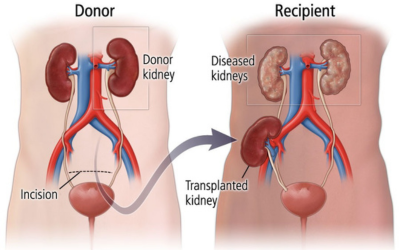
- Living Donor Kidney Transplant:
In a living donor kidney transplant, a healthy kidney from a willing donor, often a family member, is transplanted into the recipient. This method is preferred for its high success rates and shorter wait time for a kidney. At AR Kidney Hospital, we conduct thorough compatibility testing and pre-operative evaluations to ensure both donor and recipient safety. We often employ the laparoscopic method to minimize the recovery time.
- Deceased Donor/Cadaver Kidney Transplant:
For patients who do not have a living donor option, AR Kidney Hospital offers cadaver donor kidney transplants. This process involves a thorough medical evaluation of the donor, ensuring eligibility. We follow strict protocols to ensure a safe and efficient renal transplant in Nellore once a matching organ is available. Our dedicated team manages the logistics of the organ matching and retrieval process to make the transition as seamless as possible for patients.
- ABO Incompatible Kidney Transplant:
ABO incompatible kidney transplants are a specialized option for patients who have an incompatible blood type with their potential donor. The expert team at AR Kidney Hospital manages these complex cases through pre-transplant treatments and customized immunosuppressive therapies to help recipients’ bodies accept the kidneys. This allows more patients to receive transplants from loved ones despite blood type differences.
Comprehensive Pre-Transplant Evaluation
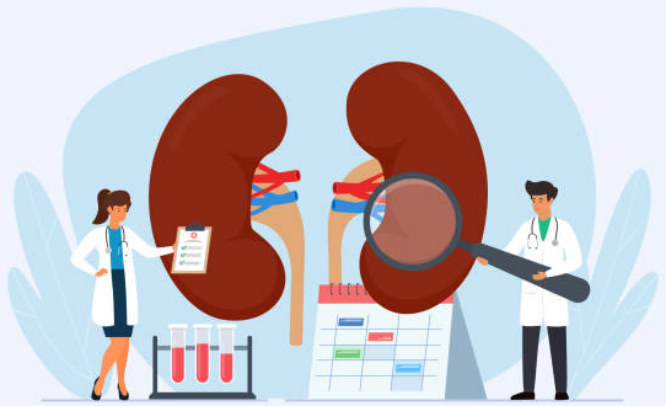
Before undergoing renal transplant surgery, patients at AR Kidney Hospital undergo a thorough pre-transplant evaluation. This assessment includes critical tests such as:
Medical History and Physical Examination: Review of past medical history, surgeries, and medications, along with a complete physical examination, to identify potential risks.
Blood Tests:
Serology Tests: Checks for infectious diseases (HIV, Hepatitis B & C) to ensure patient safety.
Blood Type and Crossmatch: Ensures blood compatibility with the donor to prevent organ rejection.
Kidney Function Tests: Measures serum creatinine and blood urea nitrogen (BUN) levels to assess kidney function.
Imaging Studies: Ultrasound or CT scans of kidneys and urinary tract to detect abnormalities
Advanced Kidney Transplant Procedure at AR Kidney Hospital
The patient meets with a transplant specialist to discuss their medical history, the need for a transplant, and the overall procedure.
A thorough evaluation, including physical examination, blood tests, imaging studies, and psychosocial assessments, is conducted to ensure the patient’s suitability for transplantation.
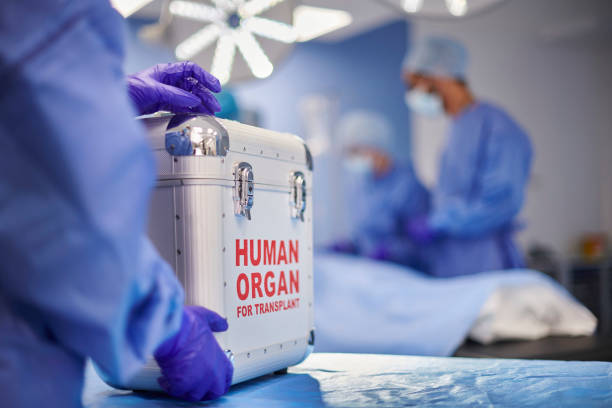
Living Donor:If a living donor is available, compatibility tests are performed to assess if the donor meets the criteria for donating a kidney.
Deceased Donor:When using a deceased donor, the hospital coordinates with organ procurement organizations to find a suitable match based on the criteria for kidney transplant and urgency.
The patient undergoes pre-operative assessments, including additional tests to ensure readiness for surgery.
The patient receives general anesthesia to ensure comfort and safety during the surgery.
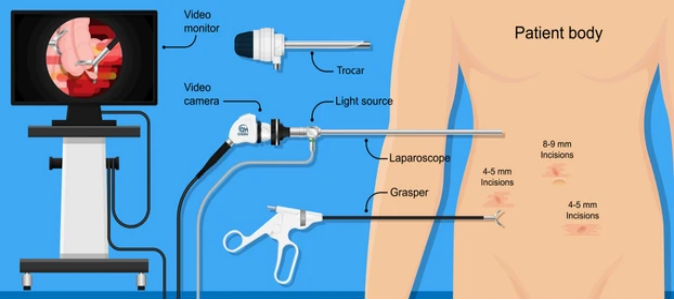
Open Kidney Transplant: In this traditional approach, the surgeon makes an incision in the lower abdomen to place the donor’s kidney. This method provides a direct view, allowing the surgeon to access and connect blood vessels and the ureter to the bladder.
Laparoscopic Kidney Transplant: In laparoscopic surgery, small incisions are made, and a camera with surgical tools is inserted. This minimally invasive technique generally results in less pain and faster recovery than open surgery. However, it requires specialized expertise and may not be suitable for all cases.
The surgeon connects the donor kidney’s blood vessels to the patient’s blood vessels to restore blood flow, which is crucial for kidney function. Then, the ureter from the new kidney is attached to the patient’s bladder to ensure proper urine flow.
After connections are made, the surgeon ensures no bleeding or leakage. The incision(s) are closed, and the patient is moved to the recovery room.
Recovery involves a hospital stay, during which the medical team closely monitors the patient for signs of infection, organ rejection, and kidney function. They also conduct regular blood tests to assess the success of the transplant. Additionally, patients are prescribed immunosuppressant medications to prevent their immune systems from attacking the new kidney.
Kidney Transplant Cost in Nellore at AR Kidney Hospital
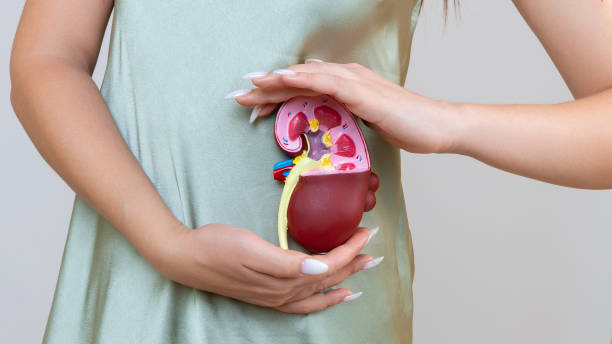
The kidney transplant operation cost depends on factors such as the type of transplant (living or deceased donor), the patient’s condition, and whether an open or laparoscopic procedure is chosen. The total expense often covers pre-transplant evaluations, surgery, hospitalization, post-operative care, and follow-up.
At AR Kidney Hospital, one of the finest kidney transplant hospitals, we strive to provide transparent, cost-effective options for renal transplant in Nellore. Financial counsellors are available to help patients understand the costs and explore insurance or financing options. Patients are encouraged to contact the hospital for a personalized estimate tailored to individual medical needs, ensuring a clear understanding of the costs required.
Success Rates of Kidney Transplant Surgery in Nellore
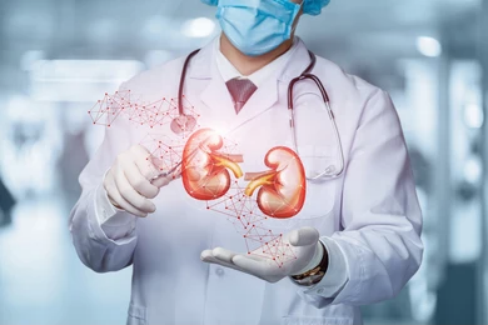
The success rates of kidney transplants have significantly improved over the years due to advancements in surgical techniques, immunosuppressive therapies, and post-transplant care. AR Kidney Hospital boasts competitive success rates that align with global standards. Patients can expect a favourable prognosis, with many achieving excellent kidney function for many years following the transplant.
Success depends on various factors, including the expertise of the surgical team, thorough pre-and post-op care, and individualized treatment plans. According to National Statistics, more than 90% of living donor kidneys and around 85% of deceased donor kidneys function well for at least five years.
Got more questions about kidney stones? Let’s address some common queries.
Frequently Asked Questions
Who is eligible for a kidney transplant?
Those with end-stage kidney disease in good overall health may qualify. Eligibility also depends on age, medical conditions, and a suitable donor.
How long does the kidney transplant process take?
The process, including evaluation, waiting for a donor, and surgery, can span months to years. The kidney transplant operation time typically lasts between 2 to 4 hours.
What are the risks associated with a kidney transplant?
Risks include infection, bleeding, and rejection, with long-term risks like kidney failure, cardiovascular issues, and medication side effects.
What is the recovery time after a kidney transplant?
Patients typically stay in the hospital for 3 to 7 days. Full recovery takes several weeks to months, depending on the patient’s health and the type of surgery.
What lifestyle changes are necessary post-transplant?
Patients should follow a healthy diet, exercise regularly, avoid smoking, take prescribed medications, and attend follow-ups to monitor kidney function.
Can a family member donate a kidney?
A family member can donate a kidney if they meet the criteria for kidney transplant. This often involves thorough medical evaluations to ensure compatibility and the donor’s health.
Disclaimer: This page is intended for informational purposes and not for promotional use.
We're Here To Help!
Office
San Francisco, CA 94143
Hours
S-S: Closed
